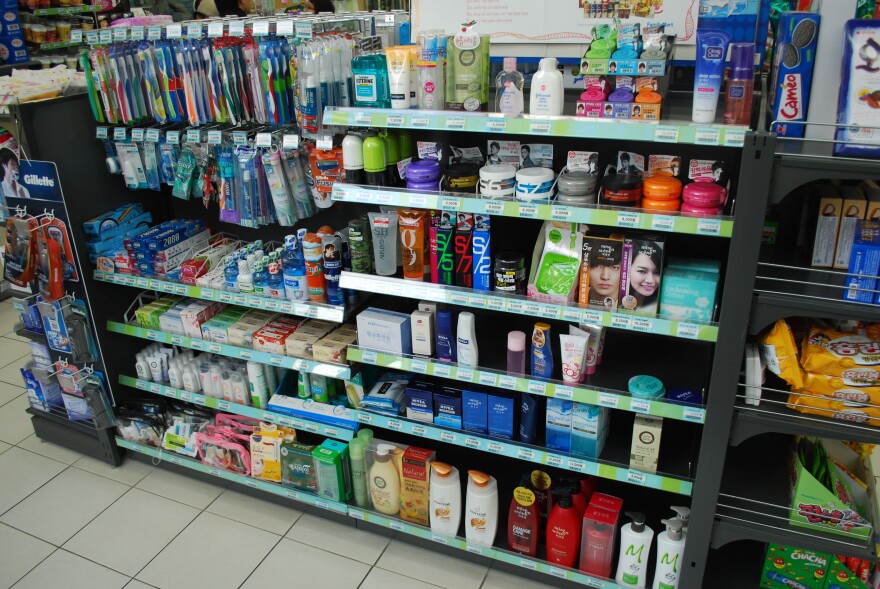Modern American life is full of synthetic chemicals - medicines, cosmetics, soaps and shampoos, household cleaners, non-stick cookware, and stain-resistant furniture. Most of us don't give much thought to where those chemicals go when we're done with them, but some researchers are tracking them in wastewater, the environment, and even drinking water.
Once you think about it, it seems obvious. We excrete much of the medicine we consume, flushing it down the toilet. We rinse cleaning agents and residues of the clothes and dishes we wash down the drain. Many of these chemicals appear to flow straight through septic systems. Wastewater treatment plants can do a better job of reducing their levels. Still, studies in recent years have found traces of pharmaceuticals and household products nearly everywhere they've looked - groundwater, streams, ponds, and coastal waters.
This isn't necessarily a new phenomenon. While the number of synthetic chemicals we use has doubtless increased, so, too, has our ability to detect these chemicals in vanishingly small amounts - parts per trillion, in most cases. That means you'd have to drink Olympic-sized swimming pools worth of water to get the amount of medicine a doctor would prescribe. And it remains unclear what, if any, effects such small quantities of these chemicals have on human health.
On the other hand, some compounds have been shown to affect animals at very low doses, and we are creating complex, unintended and untested mixtures of chemicals. There are those who argue that - health effects or no - these things simply don't belong in sensitive ecosystems or our water supply.
Eliminating them is more easily said than done, however. Advanced wastewater treatment can remove many chemicals, but comes at a cost. New research at Silent Spring Institute is looking at whether composting or urine-diverting toilets might offer a solution.
In the meantime, experts advise those concerned about the issue to limit their use of complex, synthetic chemical products (e.g. try cleaning with vinegar and baking soda, rather than store-bought formulas) and consider investing in a water filter. A tip for the savvy: don't substitute bottled water, as it may just be tap water from somewhere else.



